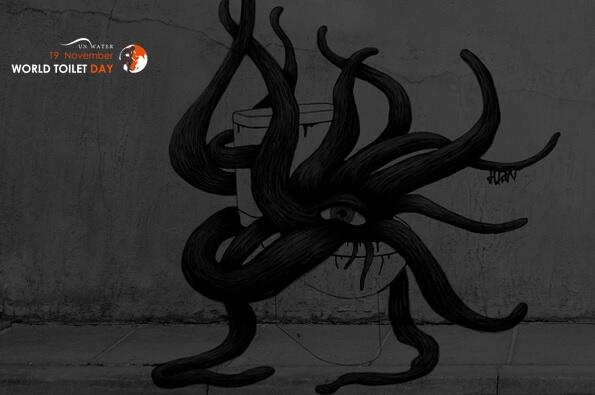19 November is World Toilet Day, a day to take action and raise awareness about people who do not have access to basic sanitation – despite the human right to water and sanitation. Today 2.4 billion people do not have access to a basic toilet. Almost 1 billion people still defecate in the open. Without good sanitation, women and children are particularly at risk of disease and malnutrition. This is why the United Nations General Assembly in 2013 designated 19 November as World Toilet Day. Communities across the world are coming together for sanitation-themed ‘Urgent Run’ walk and run events for World Toilet Day, with around 30 events being held in 18 countries in the lead-up to UN World Toilet Day. While the format of the events varies – including fun runs, educational events, motorbike parades, awareness walks, public toilet cleaning programs, carnivals – they share a unifying message: calling for urgent action to end the sanitation crisis. “It’s time for toilets to be treated as an urgent global priority,” said Jack Sim, Founder of World Toilet Organization. “The current level of effective action is far short of what’s needed given the scale of the sanitation crisis, with 2.4 billion people still without access to proper sanitation. By joining in the global Urgent Run, communities around the world are coming together to shine a spotlight on the sanitation challenge, and call for urgent action.” One in three people on this planet still don’t have access to a clean and safe toilet. One thousand children die each day due to poor sanitation. And better sanitation supports better nutrition and improved health, especially for women and children.
Public Hygiene Lets Us Stay Human (PHLUSH) is launching a comprehensive “Public Restroom Advocacy Toolkit” to celebrate World Toilet Day . The purpose of the Toolkit is to help officials and community members learn how to provide and maintain great public toilets which make cities livable, respect human dignity, and promote health and well-being. It is available at http://toolkit.phlush.org. Seventeen tools walk users through mapping existing public toilet provision, outlining options, and advocating with local governments and community members to make public toilets a reality.
There is a huge need for this kind of Toolkit in the 21st century. The United Nations recognizes access to sanitation as a human right. Public toilet availability in North America has not kept pace with demand, the changing needs of society, or revitalized downtown areas. The Toolkit addresses both renovation of older facilities and the purchase or construction of new ones. Since the 1970s, the closure of urban restrooms has been on the rise.











